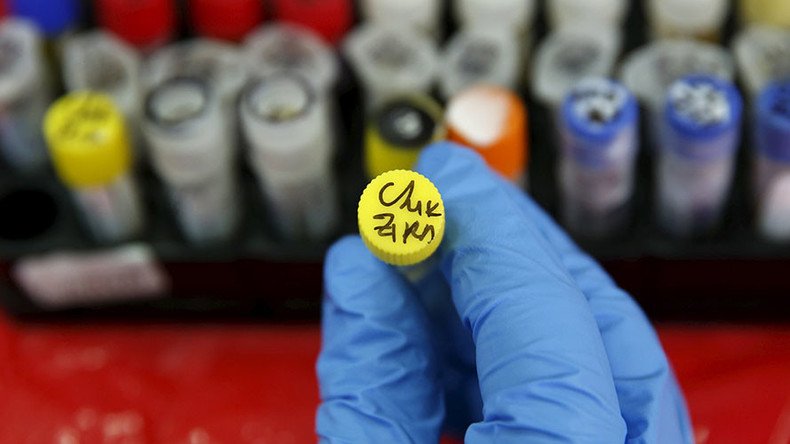Blood & organ donation ban imposed on travelers to halt Zika infection

Britain’s National Health Service (NHS) has banned travelers from donating blood for 28 days after returning from countries hit by Zika in order to prevent the virus from spreading.
Doctors have also blocked organ donations from donors who have recently traveled to countries with a high incidence of Zika. The NHS has banned transplanting organs from living donors carrying the disease, as well as those who died while infected.
“We are putting a deferral on people donating blood for 28 days after they have been to Zika infected countries,” a spokesperson for the NHS said.
“Most of the countries affected by Zika already have a similar deferral because of other diseases, so we are expecting it will have a minimal impact.
Learn more about #ZikaVirus and what the United States is doing to address it → https://t.co/JEHZ96lITd
— WH National Security (@NSC44) January 28, 2016
“There are reports of possible Zika virus transmission by blood transfusion and it is probably that infection may also be transmitted by organ transplantation.”
The World Health Organization (WHO) warned that the warmer spring and summer months may heighten the risk of Zika spreading to Europe.
So far six people in the UK have been diagnosed with the virus. Most people infected with Zika are asymptomatic, with just one in five developing any symptoms.
There are many potential causes of #microcephaly, but often the cause remains unknown pic.twitter.com/OwVioPmASc
— WHO (@WHO) February 2, 2016
Symptoms are generally mild and are characterized by the onset of fever, rash and conjunctivitis. However, the virus, which is primarily transmitted by mosquitoes, is believed to be responsible for thousands of birth defects in Brazil, which has been hardest hit by the virus.
Public Health Emergency of Intl Concern: the cluster of #microcephaly cases & its possible association w/ #ZikaVirushttps://t.co/jgnorT0Ia1
— WHO (@WHO) February 1, 2016
Thousands of infants born to women carrying the disease suffer from microcephaly, a congenital condition associated with abnormally small heads and incomplete brain development.
Earlier this week, the WHO declared the Zika virus a global public health emergency












